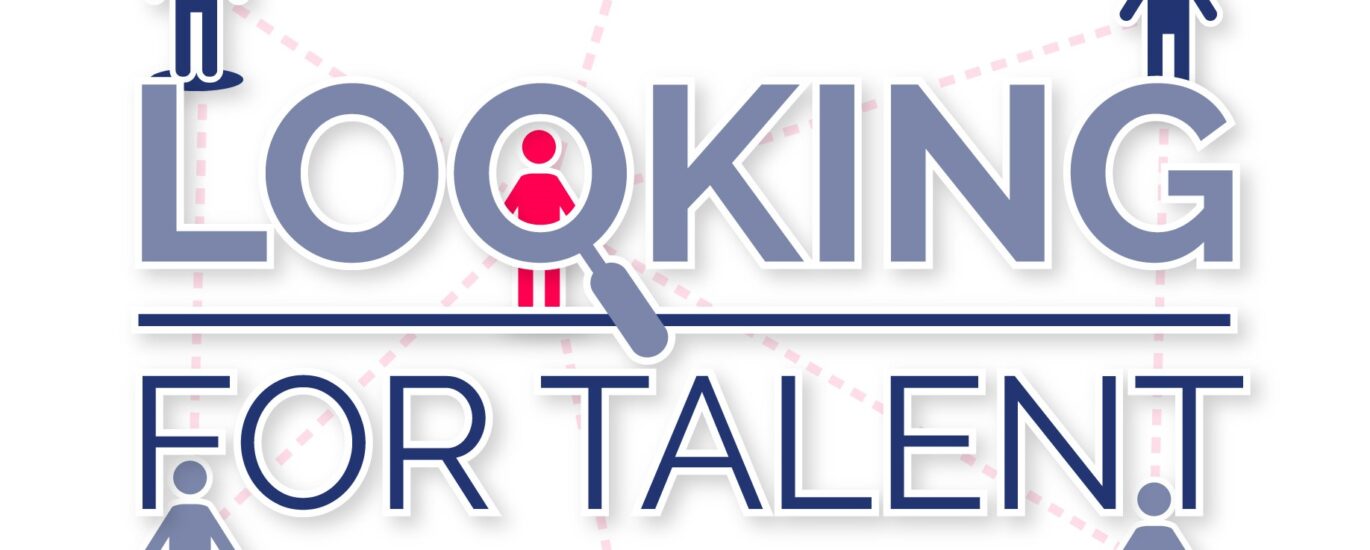



In the dynamic landscape of today’s job market, traditional hiring practices are evolving to meet the demands of a rapidly changing world. Among these transformative approaches, Skill Based Hiring has emerged as a game-changer, revolutionizing the way organizations identify, assess, and recruit top talent. This innovative approach not only ensures a more precise match between candidates and job requirements but also promotes a culture of continuous improvement within the workforce.
Understanding Skill Based Hiring
Skill Based Hiring, as the term suggests, revolves around assessing and prioritizing candidates based on their skills and competencies rather than solely on educational qualifications or past job titles. This approach recognizes that skills are the true currency of the modern workforce, offering a more accurate reflection of an individual’s ability to excel in a specific role.
Benefits of Skill Based Hiring
Enhanced Precision in Recruitment:
Skill Based Hiring revolutionizes the recruitment process by honing in on the specific abilities essential for a given role. Traditional methods often rely on broader criteria such as education or job titles, which can lead to hiring mismatches. With Skill Based Hiring, recruiters meticulously assess candidates based on their skill sets, ensuring that the chosen individual possesses the precise skills necessary for success in the position. This enhanced precision minimizes the risk of hiring discrepancies, contributing to a more effective and streamlined hiring process.
Diversity and Inclusion:
One of the standout advantages of Skill Based Hiring is its profound impact on fostering diversity and inclusion within the workplace. By prioritizing skills over traditional markers, organizations create an environment that attracts a more diverse pool of candidates. This approach breaks down barriers associated with factors like educational background or previous job titles, offering an equal opportunity for individuals with varying backgrounds to showcase their skills. Consequently, Skill Based Hiring promotes a richer, more dynamic work environment where diverse perspectives contribute to innovation and success.
Faster Time-to-Hire:
Traditional recruitment procedures often entail a prolonged evaluation of resumes and qualifications. Skill Based Hiring, on the other hand, significantly accelerates the hiring process. By focusing on the key skills required for a role, recruiters can swiftly identify candidates who meet the criteria. This expeditious approach not only saves time but also allows organizations to secure top talent promptly, gaining a competitive edge in the market. The reduced time-to-hire is particularly advantageous in fast-paced industries where agility is paramount.
Employee Engagement and Satisfaction:
When individuals are hired based on their skills, they are more likely to feel confident and competent in their roles. Skill Based Hiring ensures a match between a candidate’s capabilities and the job requirements, fostering a sense of alignment. This heightened alignment contributes to increased job satisfaction, as employees feel well-suited for their positions. Moreover, when individuals are confident in their abilities, they are more likely to be engaged in their work, leading to higher overall productivity and a positive organizational culture.
Adaptability to Industry Changes:
Industries are continually evolving, and the value of specific skills can shift rapidly. Skill Based Hiring positions organizations to adapt seamlessly to these changes by prioritizing the most relevant and up-to-date skill sets. In a landscape marked by technological advancements and industry transformations, having a workforce equipped with the right skills is crucial for staying ahead of the curve. Skill Based Hiring not only ensures that organizations remain adaptable but also positions them as industry leaders by proactively incorporating the latest skills into their teams. This adaptability is a strategic advantage in an ever-changing business environment, contributing to sustained success.
Types of Skill Based Hiring
Technical Skill Assessment:
In technology-driven sectors, where innovation is constant, technical skills take center stage. Skill Based Hiring in this context delves into a comprehensive assessment of a candidate’s proficiency in crucial areas such as programming languages, software applications, and other technical competencies relevant to the job. This method ensures that organizations not only identify candidates with the theoretical knowledge but also those who can practically apply their technical expertise to meet the demands of the rapidly evolving technological landscape.
Soft Skills Evaluation:
While technical skills are undeniably crucial, the success of any organization relies just as heavily on soft skills. Skill Based Hiring in this category places a spotlight on attributes like communication, collaboration, and adaptability. Identifying candidates with strong interpersonal skills becomes pivotal as these qualities contribute significantly to creating a positive work culture. Employees possessing excellent soft skills are more adept at working in diverse teams, handling client interactions, and adapting seamlessly to the ever-changing dynamics of the business environment.
Problem-Solving Competency:
Problem-solving is a universal skill crucial across industries. Skill Based Hiring in this domain involves a meticulous evaluation of a candidate’s ability to think critically and solve complex problems. Recruiters assess a candidate’s aptitude for analyzing situations, making informed decisions, and implementing effective solutions. This ensures that the selected individuals not only possess the necessary technical know-how but also have the cognitive abilities to navigate challenges, fostering a culture of innovation and continuous improvement within the organization.
Industry-Specific Skills:
Certain industries demand specialized knowledge and skills unique to their operations. Skill Based Hiring in these cases involves a tailored evaluation process that considers the industry-specific expertise of candidates. This may include an in-depth understanding of regulations, specific technologies, or market nuances. By prioritizing industry-specific skills, organizations ensure that their workforce is well-equipped to tackle the distinct challenges and capitalize on opportunities relevant to their sector, thereby maintaining a competitive edge.
Leadership and Management Skills:
For leadership and managerial positions, Skill Based Hiring extends beyond technical and functional expertise. It zeroes in on evaluating candidates’ leadership capabilities, strategic thinking, and decision-making skills. This approach ensures that organizations appoint leaders who not only understand the intricacies of their industry but also possess the vision to guide their teams toward success. Skill Based Hiring for leadership positions focuses on identifying individuals with the right blend of technical proficiency and the ability to inspire and lead others, creating a foundation for sustained organizational growth.
In Conclusion: The Strategic Imperative of Skill Based Hiring
As the workforce landscape undergoes profound transformations, the adoption of Skill Based Hiring emerges not merely as a passing trend but as a strategic imperative reshaping the foundations of recruitment. This innovative approach transcends conventional hiring practices by prioritizing skills over traditional markers, offering organizations a pathway to build teams that are not only agile but also diverse and high-performing.
The strategic significance of Skill Based Hiring becomes evident in its ability to align recruitment practices with the evolving realities of the modern workforce. By focusing on skills, organizations transcend the limitations imposed by educational qualifications or past job titles, ensuring that candidates are selected based on their practical abilities to meet the demands of the job.
Building Agile Teams:
In a rapidly changing business landscape, agility is not just an advantage but a necessity. Skill Based Hiring enables organizations to build teams capable of swift adaptation to industry shifts, technological advancements, and evolving market demands. By emphasizing the specific skills required for each role, organizations foster a culture of responsiveness and innovation. This agility positions businesses to navigate uncertainties and capitalize on emerging opportunities, driving sustained success in a dynamic environment.
Fostering Diversity and Inclusion:
Diversity is more than a buzzword; it’s a catalyst for innovation and organizational excellence. Skill Based Hiring plays a pivotal role in fostering diversity and inclusion by removing biases associated with traditional markers. Emphasizing skills creates an equal playing field, attracting candidates from diverse backgrounds, experiences, and perspectives. A workforce enriched with diversity contributes to a more vibrant and creative work environment, enhancing problem-solving capabilities and reflecting the varied needs of a diverse customer base.
High-Performing Teams:
Skill Based Hiring is a cornerstone for assembling high-performing teams. By selecting individuals based on their ability to excel in specific roles, organizations ensure that each team member brings a unique set of skills to the table. This strategic composition of talents and competencies enhances collaboration, sparks innovation, and collectively propels the team toward achieving organizational goals. The result is a high-performing workforce that not only meets but exceeds expectations, fostering a culture of excellence.
Navigating the Evolving Business Landscape:
As the business landscape undergoes continuous evolution, Skill Based Hiring becomes the compass guiding organizations through change. The approach ensures that teams are composed of individuals with the most relevant and up-to-date skill sets, enabling organizations to stay ahead of the curve. This adaptability to industry changes positions businesses as leaders in their respective sectors, ready to embrace innovation and capitalize on emerging trends.
In essence, Skill Based Hiring is the key to unlocking a sustainable and successful future for any organization. It transcends the limitations of traditional recruitment practices, offering a strategic framework that aligns with the demands of the modern workforce and the dynamic nature of today’s business environment. As organizations continue to embrace this paradigm shift, they position themselves not only for current success but also for future resilience and growth in an ever-changing world.
For better career options choose us!